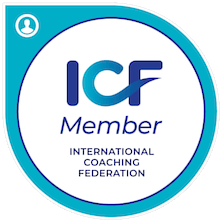Maybe not for you, but for some, Thanksgiving Day is a dreaded time. Family coming together over a simmering pot of emotions: the hurt, the pain, the bitterness, the resentment, the look of judgment, the pretense — all sitting together at the same table, trying to be on their best behavior. Some will even choose to skip the family gathering in order to avoid potential conflicts or ill feelings.
There is another group, however, that can gather at the table. This group is called THE FAMILY. No, it’s not what you think, so keep reading.
Dr. David Allen, Bahamian psychiatrist, believes in a theory of behavior called Contemplative Discovery Pathway Theory (CDPT). CDPT promotes self-discovery as a path to psychological wellness. The “Self follows a stepwise path from the Natural Self at birth to the Shame Self and its antithesis, the Shame False Self, in early development to the healthier Authentic Gracious self in adulthood and potentially even the Contemplative Transcendent Self late in life.” I won’t get into the nuts and bolts of the theory, but something got my attention in a recent CDPT study published by Dr. Allen et al.
“Jaw, jaw stops war, war”
About five years ago, Dr. Allen used the CDPT model to develop a unique group therapy approach in The Bahamas called THE FAMILY. I said the ‘approach’ is unique, not the name. The motto of THE FAMILY is “Jaw, jaw stops war, war.” A mixed group of adults “including referrals from the community or courts due to delinquent behavior, domestic violence, substance abuse, grief, vengefulness, anger management, conflict resolution, and traumatization from crime,” would spend two hours together each week under the moderation of a therapist and co-therapist. They create an environment in which they can “confront their issues in a safe and non-judgmental environment,” and they talk openly. Because of this family-like environment, the members are able to teach, experience and cultivate gratitude, forgiveness, humility, and love.
Shame and the Four Virtues
Gratitude, forgiveness, humility, and love are the four virtues which are essential to maintaining physical and psychological wellbeing. They — especially gratitude — diminish feelings of shame.
What’s the big deal with ‘shame’? (Well, you could ask Adam and Eve . . .)
But according to the study, the experience of shame is a normal part of growing up. However, when the pain associated with shame is persistent and traumatic, the mind creates a Shame False Self as a defense mechanism. It is this Shame False Self that is “an obstacle to personal development” and to maintaining psychological wellbeing. It is “addictive in nature and characterized by self-absorption, self-gratification, and a need for control.” In fact, shame is believed to be at the root of negative self-image, anger, suicide attempts, and overeating, for example.
The cultivation of gratitude, forgiveness, humility and love, therefore, is important to becoming a healthy person—becoming one’s Authentic Gracious Self.
The Replica and the Real Thing
Then it struck me. If, as Dr. Allen’s study showed, a replica of the family can bring healing to individuals, then certainly the “real thing” should be able to do likewise. When families gather around the Thanksgiving table, it can be a place of healing if gratitude, forgiveness, humility and love are also at the table.
So how can you make your family gathering at Thanksgiving THE FAMILY gathering?
Here are a few approaches I gleaned from Dr. Allen’s study. 1. Make the atmosphere around the dining table or wherever the family will gather a safe and non-judgmental one. Make this known to family members. The purpose of THE FAMILY and the family is to provide support and advocacy for its members “allowing them to discover themselves and grow as individuals” to become their Authentic Gracious Self.
2. Allow each family member to introduce himself or herself and to share what they expect from the dinner. The introduction gives the family member the opportunity to affirm, challenge or change how they are perceived by the family. Maybe there’s a daughter who does not want to be addressed as “Puffy Cakes” now that she’s sixteen and svelte. Or a son who wants to be called by his first name rather than simply “Junior.”
3. Talk, talk. Listen, listen, listen, listen. Yes, listen twice as much as you talk. At least be certain to listen while another family member is talking. Listen until they are done speaking. Then offer insight or opinion without being judgmental. Choose your words well, be sensitive because the power of life and death are in the tongue.
4. Treat with confidence whatever a family member shares about himself or herself. Don’t take it for granted that you can tell it to another family member who was not at the dinner. It is up to the member to share information about himself or herself with people outside of the family dinner.
5. Pray. Pray at the beginning of the dinner and pray at the end of the gathering before everyone leaves to go their separate ways. Prayer has soothing and rejuvenating effects on the brain; it strengthens family ties; and, it signals to God that He is welcome to join the gathering and to be a part of the affairs of each family member.
Gratitude, forgiveness, humility and love. Use these virtues to make your family its Authentic Gracious Self this Thanksgiving.








